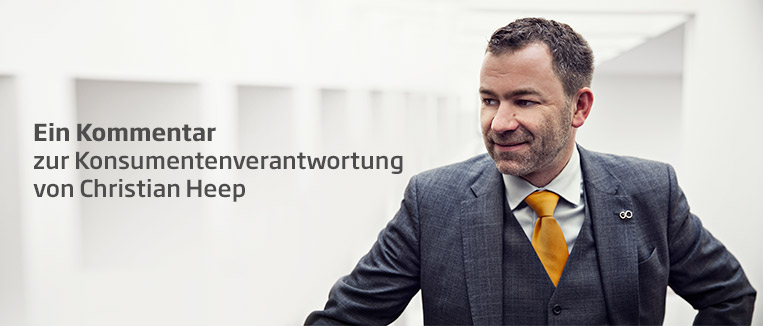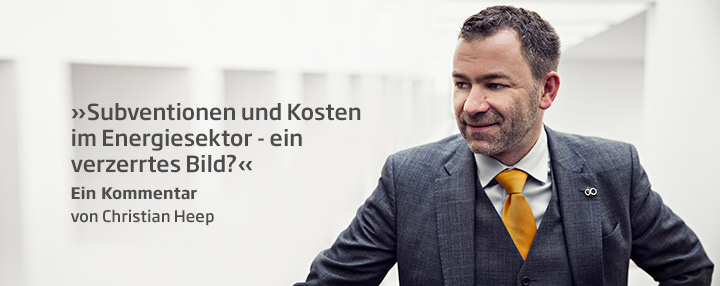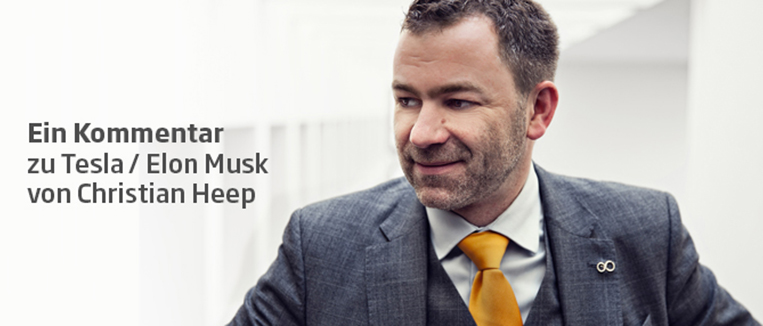
A commentary on consumer responsibility
17.03.2022 / Column / Comment by Christian Heep
Demand determines supply. Or does supply determine demand? That’s not so easy to clarify. Both are probably true. The evolution from a free market economy to a social one is an achievement and not a development towards a purely planned economy. And nobody wants to go there. State intervention is justified and regulates market activity more or less well via economic and socio-political corrections in order to work towards a social balance. In addition, many companies have agreed on a CSR course and are thus incorporating their corporate social responsibility into their corporate activities as a sustainability strategy, among other things. Sometimes, however, only on paper.
I have noticed that consumer responsibility is increasingly being used as the sole regulator for various market situations. After all, consumers have the power to decide on their consumption behaviour and can therefore virtually control what is on offer. I find this shifting of responsibility to the consumer side fundamentally difficult. Unfortunately, this is now common practice in many areas of our consumption and shifts supposed potential solutions onto consumers without addressing the distributors and legislators in an appropriate manner. Politicians, in particular, are called upon to draw up a set of rules that is suitable for reducing abuses through appropriate steering effects. Such framework conditions can create clarity, planning and financing security and thus avoid distortions in the market environment. This is a systemic, cross-product and cross-sector problem and not a challenge that consumers alone can solve. Creating this impression is wrong.
It is unacceptable that in the 21st century – especially in our progressive and humanitarian societies – it is still permitted to bring products onto the market that even hint at child labour, for example. This should of course be strictly sanctioned and this applies to all sectors and all products that want to find their way into Europe. One example I would like to mention here is the accusation of child labour in the mining of cobalt.
It is also important to understand that lithium and cobalt in particular are pseudo-arguments used to discredit electromobility. It is not the case that we mine and need these raw materials exclusively for e-cars. Nobody has been interested in this for the last 40 years – just as we consumers are only marginally affected by where our T-shirts come from, where our plastic ends up, where our affluent waste is disposed of, etc. To evade this responsibility on the part of politics and business with the perfidious argument of private self-responsibility – knowing full well that this will not work in a society that is not perfect – is an ingenious move that, on closer inspection, externalises these areas of responsibility and preserves a status quo that only leads to processes changing very slowly for the better.
This is precisely where the new Supply Chain Act, which is to be introduced by the EU Commission in spring 2022 as a legislative proposal to protect human rights and the environment, will come into play. Companies will then be obliged to enforce minimum environmental and social standards abroad from 2023 at the earliest. This means moving away from purely voluntary corporate social responsibility towards binding due diligence obligations.
This is only logical and I very much welcome it. After all, consumers can only change the prevailing market and supply structures in theory. The reality of life and the actual impact are different. Responsible consumer behaviour is of course still needed to send out initial market signals and exert pressure on politicians…! It is not wrong to behave in an ethical, moral and environmentally friendly way. Quite the opposite: this exemplary behaviour, the discourse and the associated sensitisation within society is the trigger for change processes, for transformations and for better living conditions overall for us and future generations. Ultimately, the regulatory framework is the most important factor in this process. The political mandate as a core element of a social and hopefully increasingly sustainable market economy. Classic bonus-malus can also make a valuable contribution, if done correctly, to actually promoting positive consumer behaviour across society. And that’s what politics does – just not always with the right levers. For example, eSUVs are promoted very well, but light vehicles are not (yet). This is where I see a mandate for consumers and institutional organisations to constantly act as a corrective and formulate socio-political input.









